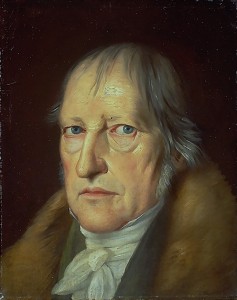 In the last paragraph of absolute knowing, recollection (Erinnerung) comes on the stage as a leading actor which plays a significant role in achieving a whole complete system.
In the last paragraph of absolute knowing, recollection (Erinnerung) comes on the stage as a leading actor which plays a significant role in achieving a whole complete system.
The Phenomenology of Spirit, as the science of experience of consciousness, begins its process with the most primitive form of consciousness and gradually penetrates to true knowing or to absolute knowing.
Throughout its self-educating process, consciousness tests the actuality of its knowledge which means that it tests whether its notion corresponds to its object. This process of comparison, seeking a perfect reconciliation of the notion and the object, shapes the pathway of the series of configurations which is the detailed history of the education of consciousness.
Such process fulfills its aim when consciousness reaches its final level in which the notion and the object correspond to each other and consciousness no longer needs to go beyond itself.
When consciousness grasps the whole process as its own essence, it signifies the nature of absolute knowing. In order to comprehend itself as the whole, absolute knowing must recollect the whole process in its unity. When absolute knowing recognizes itself as the whole process, the process is no longer external to absolute knowing. In other words, it internalizes (Er-Innerung) the whole process, thereby achieving its spiritual freedom which is liberation from all external binds.
The paper examines recollection as one of the main figures in the Phenomenology which enables absolute knowing to behold the whole in its unity and to liberate itself from its external binds. Therefore, recollection is also the main figure which provides a transition to the next level of Hegel’s system i.e., the Science of Logic.
Autor: Meryem Ucar.
